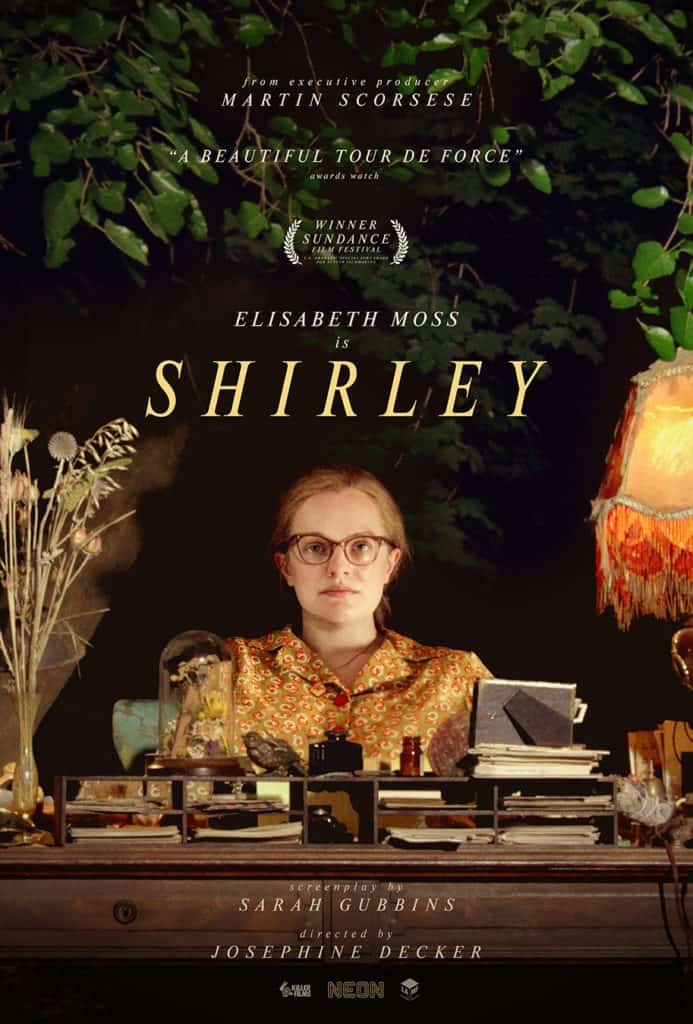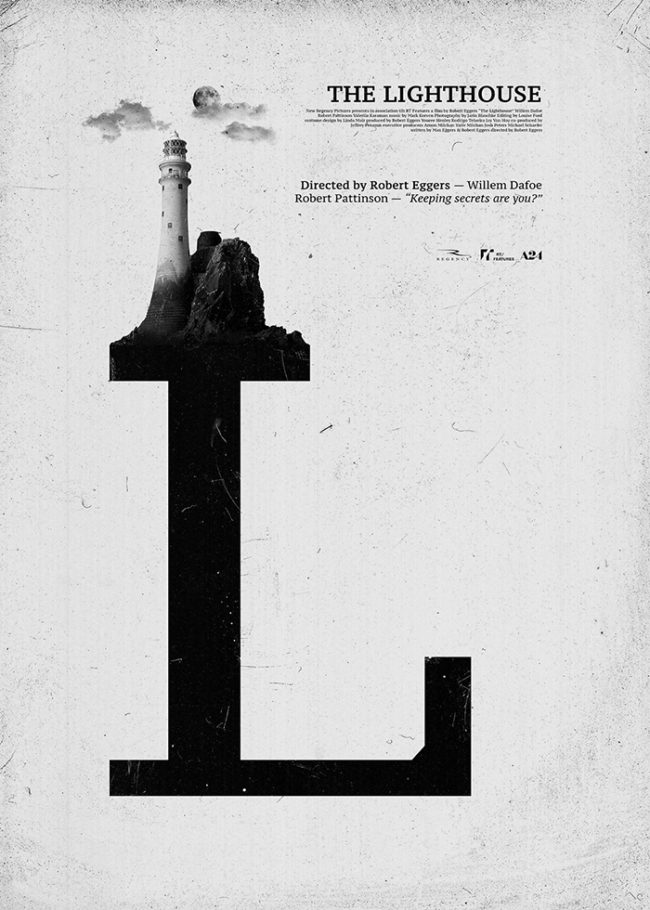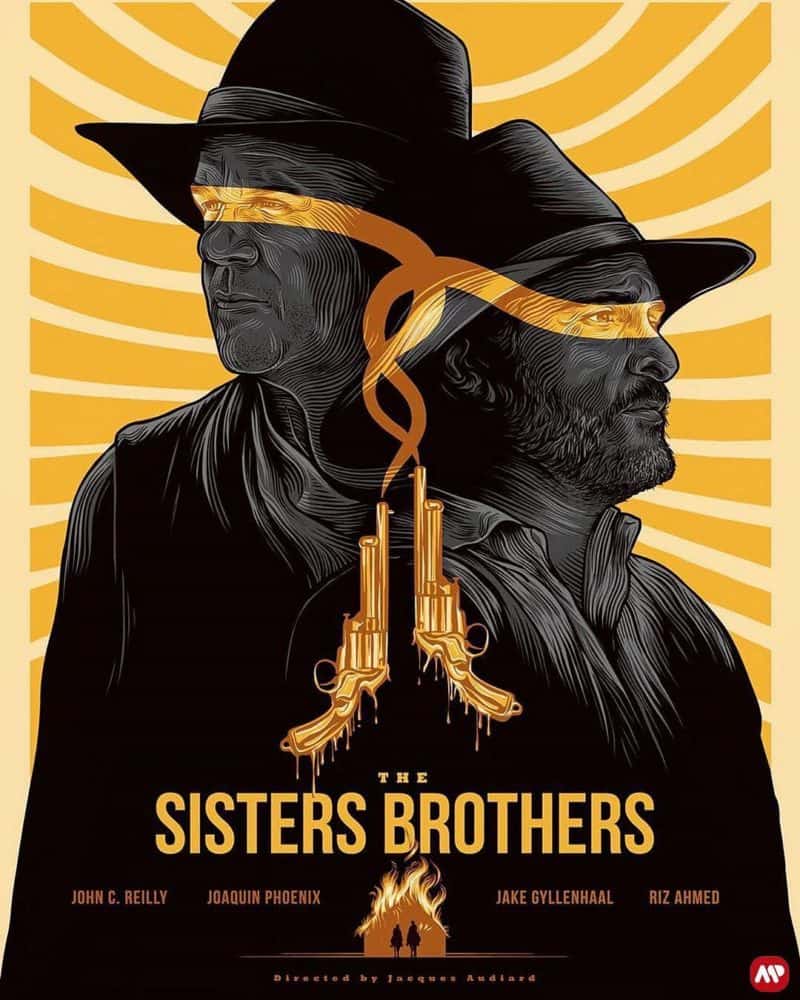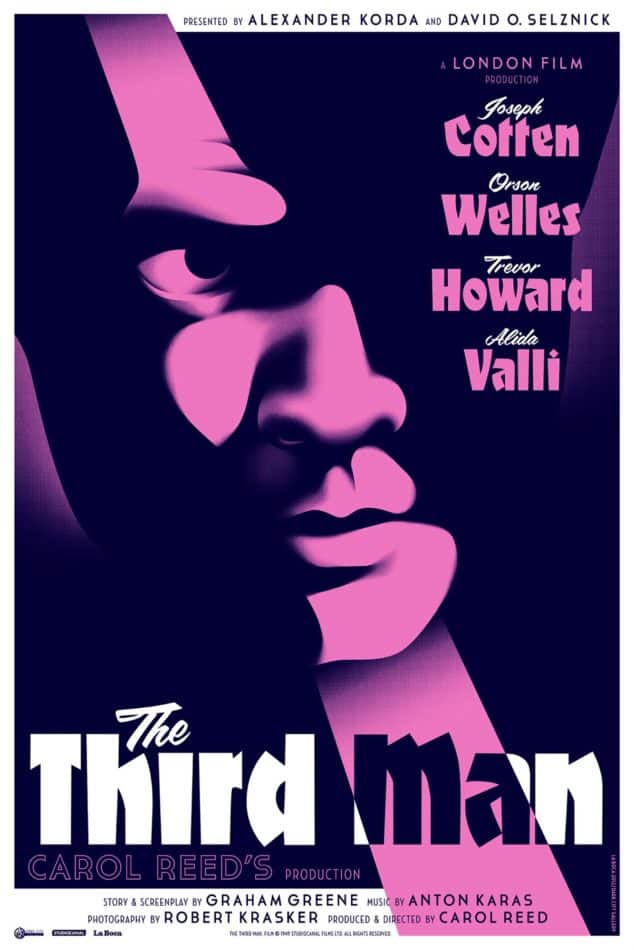
After years in the underground punk and rock scenes, Tamar-kali made a splash with her debut score: 2017’s Mudbound. While Mudbound may have been a more conventional (albeit quite excellent) work, Tamar-kali has moved into far more experimental territory with Shirley.
Shirley tells the story of a young married couple, Fred and Rose, moving into the home of famed horror and mystery writer Shirley Jackson and her husband Stan. During the first part of the film, when the main characters are still finding their way and the plot is only beginning to take shape, most of the music is licensed tracks from the 1950s. These give an immediate sense of time and place while creating a deliberately false sense of tone. Beneath the façade of joyful society lies something far darker. This is where Tamar-kali’s score begins to emerge.
The score takes quite a while to first appear. When it finally does, it is in short snippets of discord and droning violins that slowly build, egged on by occasional, pulsing bass. These interludes act almost as a tunnel into the minds of Rose and Shirley, cueing the viewer into these characters’ thoughts and feelings without the need for voiceover or overt explanation. One of the clearest examples of the score showing interiority is when Rose walks through the university campus where Fred and Stan teach. She sees a group of young women socializing and enjoying each other’s company, seemingly free from the chains of contemporary society that binds Rose. The images slow and Tamar-kali’s score kicks in. Its gradual buildup is mesmerizing, channeling Rose’s own fixation on the women, both in terms of their relative freedom and with a subtler, sensual undertone.
These feelings pervade the score and Rose’s point of view, becoming something seemingly unobtainable and forbidden. But it is also alluring, triggering a sort of spiritual awakening furthered by Rose’s close, constant relationship with Shirley. Tamar-kali establishes this relationship by frequently using multiple female voices (representing the characters) performing a complicated vocalise, at times harmonizing and at others creating a more robust multi-part composition. It’s a bold choice. While most scores would, at most, use a leitmotif or instrument to represent each character, Tamar-kali instead gives them their own literal voices in the score. It becomes a world in which only these women can inhabit, creating a space in which they are unchained and driving their self-determination.



